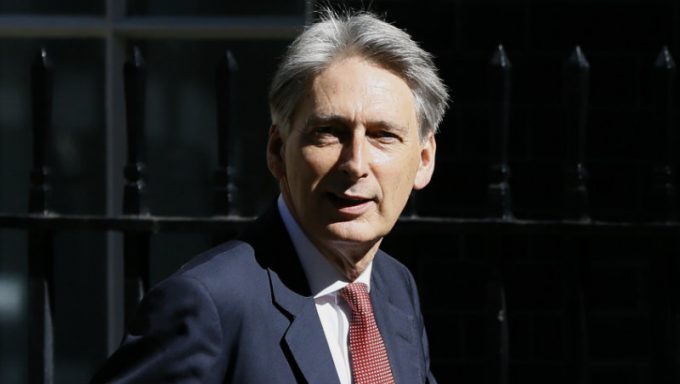UK to again delay start of checks on EU imports
Surprise, surprise: the UK government has decided yet again to delay import checks, it has ...

Freight and transport lobby groups have claimed UK chancellor Philip Hammond could have done more to improve the lives of UK transport operators than simply news that fuel duty would be frozen for a seventh consecutive year.
Responding to the chancellor’s autumn statement yesterday, Freight Transport Association deputy chief executive James Hookham said that while the freeze recognised the impact on businesses and families, a cut would have brought greater economic benefit.
“The chancellor has understood the arguments made by the FairFuelUK campaign and fuel duty has moved from being a ‘sin tax’, like alcohol and tobacco duty, to being recognised as a core burden on families and businesses,” said Mr Hookham.
“But the chancellor needs to continue that logic and recognise that reducing tax duty will bring even greater benefit.”
Mr Hookham said he expected the freeze to result in savings of £9,000 a year for a typical 10-vehicle haulage fleet.
Road Haulage Association (RHA) chief executive Richard Burnett echoed Mr Hookham’s stance, noting that a cut in fuel duty would have made a real difference for truck operators across the country.
“But a further fuel duty freeze? We’ll happily take that,” he added.
Mr Burnett said the freeze would help mitigate the 2% rise in Insurance Premium Tax, which he described as a “disappointment”.
As a founder member of FairFuelUK, the FTA has consistently lobbied government for a 3p cut in the 57.95p per litre fuel duty rate, which it claims would deliver annual savings of £1,500 per 44-tonne truck.
The FTA argued this would support transport firms that not only operate on tight margins, but also in an atmosphere of uncertainty following the Brexit vote.
However, the chancellor’s commitment of an additional £1.1bn investment in local transport networks across England was applauded, with £220m earmarked for addressing traffic pinch points on strategic roads.
“The increased spending on infrastructure is great news and we await the details of which specific road and rail schemes will go ahead in the next few days, but we are pleased that the east-west corridor investment between Oxford and Cambridge is going ahead,” said Mr Hookham.
“Another priority for FTA is the route of the approach roads to the new Lower Thames Crossing between Gravesend and Tilbury.”
Mr Hookham said that the FTA would be presenting a list of preferred schemes that most benefited freight movements to local highway authorities and devolved governments.
The RHA said the decision to increase infrastructure investment would be welcomed by a haulage industry that is claimed to transport 85% of the country’s goods every year.
“Roads are the haulier’s place of work,” said Mr Burnett. “Any measures to make their journey easier, more efficient and certainly more cost-effective will contribute greatly to the movement of the UK economy and help ease the cost of congestion.”
Kevin Richardson, chief executive of the Chartered Institute of Logistics and Transport (CILT), highlighted the £390m put aside for development of low-emission vehicles and the development of connected autonomous vehicles; £1bn to improve and develop digital infrastructure; and £450m to be spent on trialling rail digital signalling technology.
“The importance of technology to develop a green, reliable and fit-for-purpose network across the country will only help contribute to raising Britain’s productivity,” added Mr Richardson.
Comment on this article